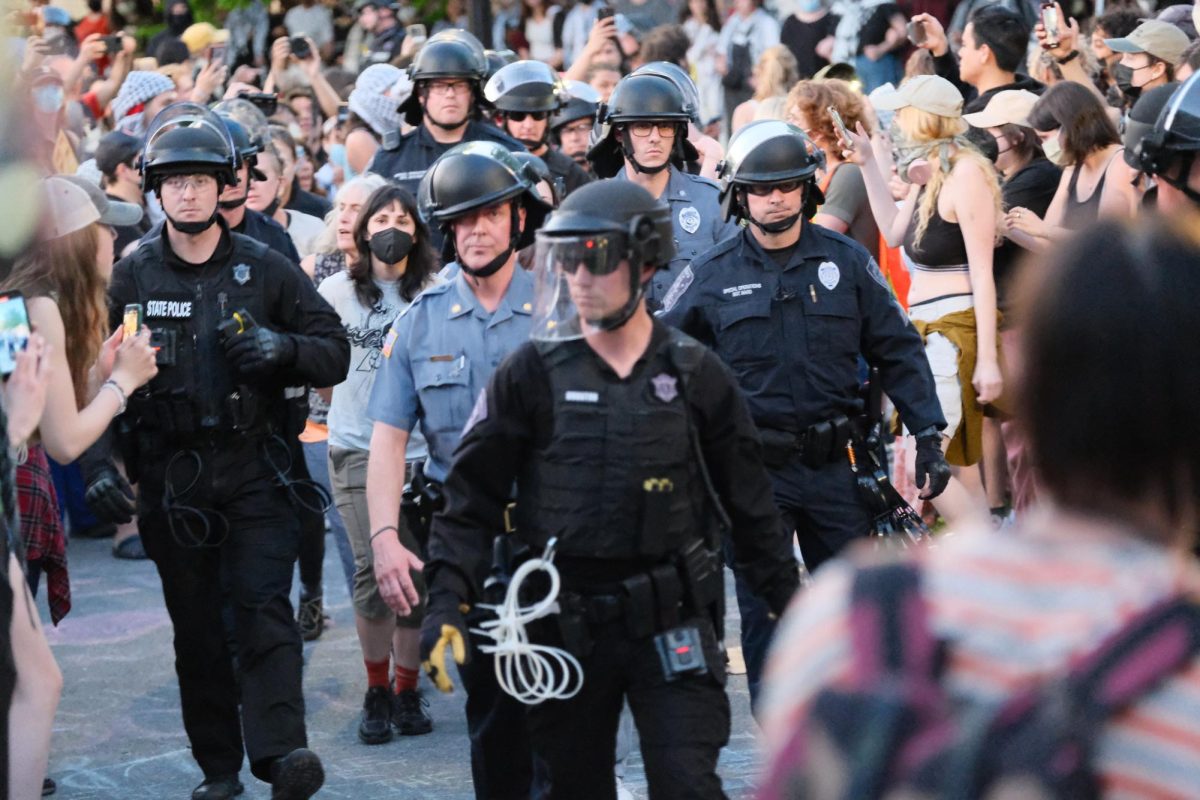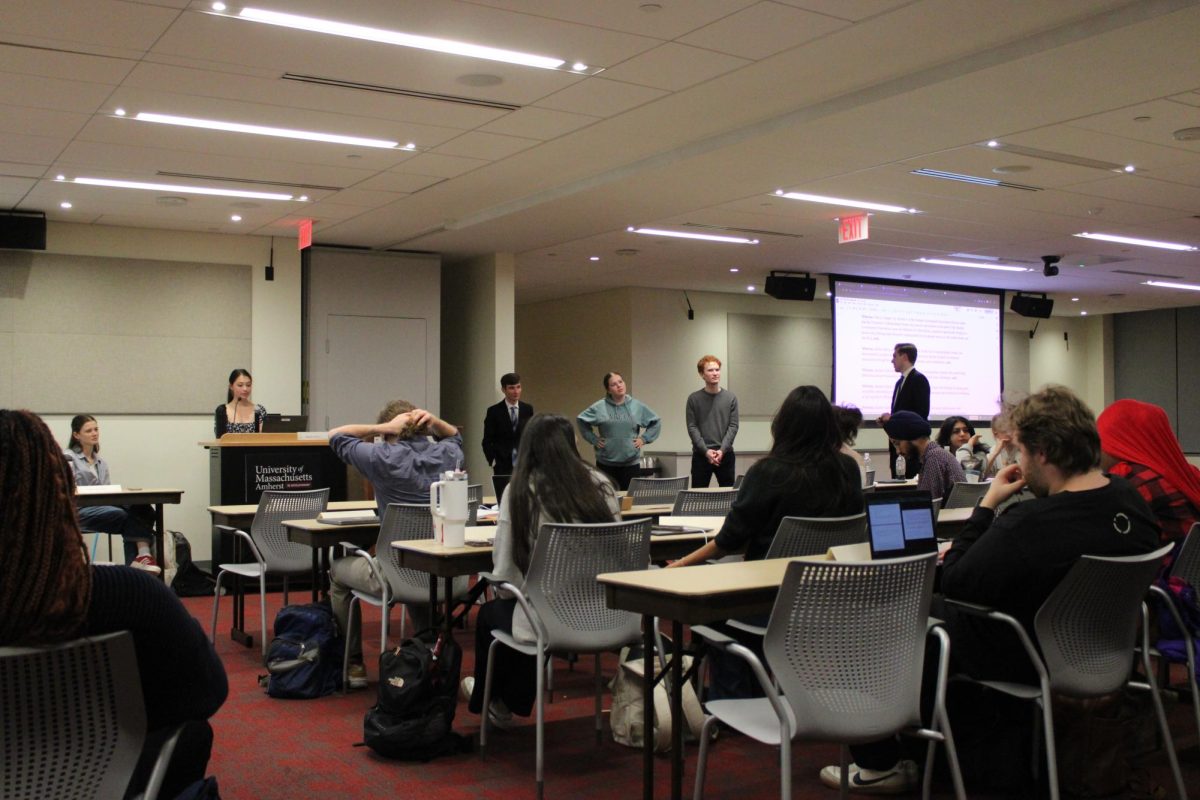
A memorandum including the definition of penalties for violating the Amherst water ban was approved at a Select Board meeting yesterday after being delayed until later in the meeting.
A violation of the water ban will result at first in a warning, then in a $50 fine, followed by a $100 fine for a third offense.
Despite the creation of the ban, Amherst Town Manager Paul Bockelman said it had only been proposed as a precaution at the meeting in the Amherst Town Hall, which about 30 people attended.
“We’ve seen a lot of compliance,” said Bockelman. “We don’t think we’re going to need a lot of [fines] but it is really good to have this in case we have partners who aren’t complying.”
People who want to appeal penalties imposed on them from the ban can appeal to the district court within a 20 day period of receiving it.
“I think overall the news is good news,” said David Ziomek, the assistant town manager and director of conservation and development for Amherst.
Ziomek said that rainfall in the forecast could help the current drought, as well as cooperation from the University of Massachusetts, Amherst College and Hampshire College. Ziomek said that colleges in the town had cut back on water usage “from dining commons to sports grounds and physical plants.”
Ziomek also showed a graph of water production from the months of August to October with five-day average production rates listed for 2016, 2015 and an average of 2010-2015.
Since the beginning of water usage restrictions, which started on Aug. 19, 2016, water production has remained consistently lower than that of 2015 or the five-year average.
“We are trending below 3 million gallons produced per day, that’s right at our demands,” said Ziomek.
Ziomek added that the town of Amherst was continuing to bring together its emergency management staff to talk about potential situations, and that the town was extensively monitoring the water supply from their wells.
Rob Morra, the building commissioner of Amherst, said the intention of the memorandum was to clearly define that the water limitations are temporary and to create a procedure for penalizing violations of the ban in line with Amherst’s non-criminal jurisdiction.
Select Board member Connie Kruger was uncertain about how the Select Board could lift the ban, which was implied in the memorandum.
Kruger was also uncertain about whether UMass would be excluded from the restrictions as a state agency or included as a customer of the town of Amherst.
“Anyone who uses the Amherst water supply is a customer,” confirmed Ziomek.
The memorandum listed examples of non-essential water usage, which is banned. They are the irrigation of lawns with automatic systems such as sprinklers, washing of vehicles, the washing of exterior building surfaces and sidewalks, and filling privately owned pools.
While a motion to vote on the memorandum was approved, Kruger argued that the vote should be pushed until amendments could be made after the other items on the agenda had been gone over. Andy Steinberg, who had motioned for the vote, retracted his motion.
Stuart Foster can be reached at [email protected] or followed on Twitter @Stuart_C_Foster.
Editor’s Note: An earlier version of this story was published before the Select Board had voted on the memorandum.


















